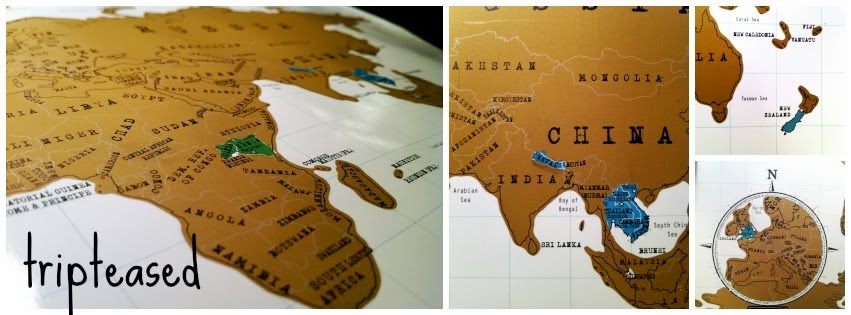Can't. Stop. Listening.
Sunday 20 October 2013
Wednesday 16 October 2013
Tuesday 1 October 2013
The Story of the Cows
I’ve always felt the countryside is the type of place to appreciate from my car window, watching the green roll out in front of me at a safe distance. Likewise, I’ve never had much affection for livestock and, in particular, cows - due to their large size, they kind of freak me out.
So you can imagine my face when I was told one of my days in Uganda would be spent visiting cows - cows! Looking. At. Cows. Not only do I not want to get up close and personal with the bovine species, but even if I did, there is ample opportunity to do so right here in New Zealand from behind some very sturdy fencing.
Naturally, for this part of the trip, my expectations were pretty low. I couldn’t fathom how I could pass a day looking at cows.
To give some background, these are special cows. They were a partnership between a New Zealand and a Ugandan organization looking to find an empowering solution to generate income for rural women who need to support themselves and their family. The ladies need cows, they tell us. For milking, for breeding, for fertilising their small plots of farmland.
Cows? We can do that. The funds were slowly raised, particularly as a law change in Rwanda increased the cost of cows by almost a fifth practically overnight. 8 pregnant heifers were purchased and delivered to the village. The women of the cooperative decide together who receives each cow, along with education on cow rearing, fencing and feed, with the first born calf being returned to the group to be passed onto another woman and her family.
Setting out for the day, our local representative, Leslie, tells us a bit more about what it means to own a cow, particularly for a woman. These women are married but effectively raise their children alone - their husbands are very inspecifically “elsewhere”, we are told. The village is close-knit and the women support each other, but they needed a way of earning an income. Having ownership over an asset, such as a cow, is not only a way to support themselves, but a huge step in terms of the empowerment of these women.
Our little cruiser van turns off with no warning and chugs up a dirt path - actually, I’m not convinced it was a path before we forged our way through the bushes, branches stretching, creaking and landing with a thick “thhhwack” on the windscreen. I don’t think this small, rural village somewhere between Kampala and Jinja ever has visits from large motor vehicles.
I’m not sure if it was the anticipation or the fact that the van was swaying over the edge of a rather sticky looking ditch, but the chatter in the van was silent. Faintly, over the revving of the engine, we hear calling.
“They know we’re coming” says Leslie, with a smirk.
“Ayiyiyiyiyiyiyiyiyiyi!”
We stepped out of the bus and into the arms of Kitoola, a little village very focused on its community efforts, but at this moment, very focused on us. This felt like the type of welcome usually reserved for old friends or returning family. The singing, the chanting, the dancing all continued - there was an energy bouncing between these women that swallowed us in.
Pulled in by the crook of an elbow and a bright smile, we were taken between stretches of the village, to the first cow. The singing stops abruptly and a woman steps forward and stands next to her cow. Four words. “This is my cow”. The Kitoola women around us erupt in applause and laughter.
Each cow looked much the same, but each woman stood proud and told us how she cares for her cow and what it means to her - these explanations are translated to us from Luganda to English. Every time, the reaction of pure unbounded happiness from the women is the same.
Despite not knowing us, the village welcomed us before they even saw us. These women wanted to share with us what we had shared with them. So, I threw my dislike of all things “farm” aside and listened.
I heard stories of context - not just what these cows will provide for these women in terms of goods or dollar amounts, but how this is impacting their life and the life of their family.
I heard about the first cow giving birth - it was the middle of the night, and yet the women of the co-op gathered themselves together, running through the village to watch, to help and to celebrate the first calf for their group. A sign that this project had leapt to self-sufficiency and will continue to provide for the community.
I heard songs of gratitude and laughter rippling with pure joy.
By the end of the day, we were dancing with them and felt a heaviness empty out of our bones. Children sat cross-legged on the floor, in fits of laughter at the “mzungus” attempting the Ugandan hip-swaying rhythm. You’d think maintaining this level of excitement (and physical exertion) would be exhausting, but if anything, the energy only multiplied as the afternoon burned on.
From what I know about the disposition of Ugandan people, these women were happy and joyful before we came, before the cows. Their happiness is not what is remarkable. But that day, they chose to share this happiness with us as strangers and let us carry it home.
 |
| Women's Co-operative meeting - Kitoola, Uganda |
Subscribe to:
Posts (Atom)


